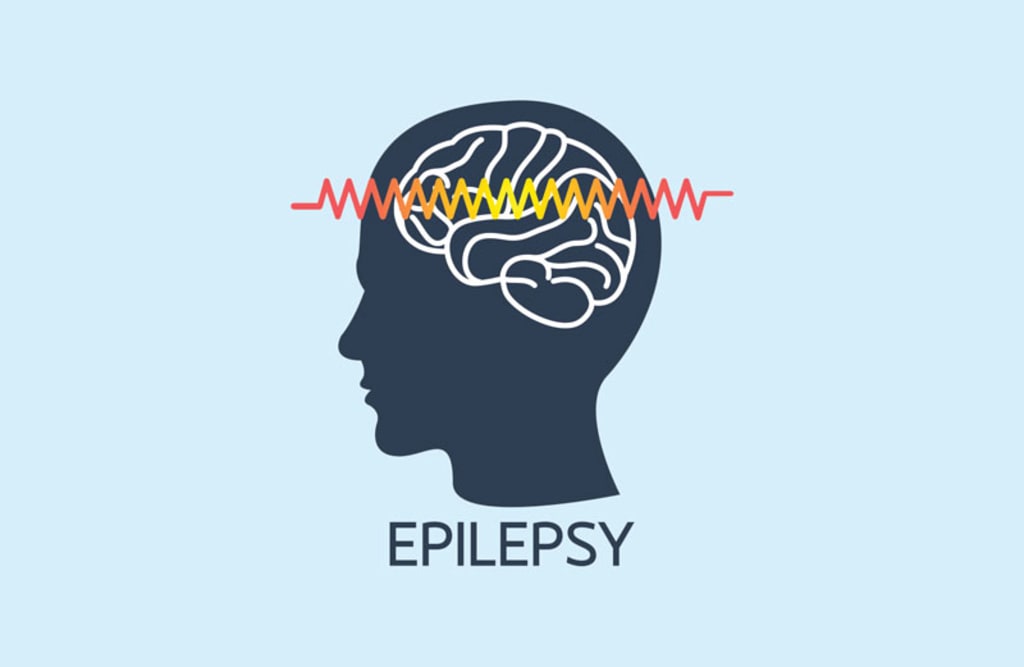Understanding Epilepsy : Symptoms, Causes, Seizure Type, And Treatment Options
Bright Minds Biosciences

Epilepsy is a neurological disorder characterized by recurrent, unprovoked seizures. It affects approximately 50 million people worldwide and is one of the most common neurological disorders. Epilepsy can affect people of all ages and backgrounds, and it can have a significant impact on an individual's quality of life.
Symptoms of Epilepsy:
The main symptom of epilepsy is seizures. Seizures are abnormal electrical discharges in the brain that cause a range of symptoms depending on which part of the brain is affected. Seizures can cause convulsions, loss of consciousness, confusion, and altered sensations, among other symptoms. Seizures can last from a few seconds to several minutes, and they can occur at any time.
Causes Of Epilepsy:
The causes of epilepsy are varied and can be difficult to identify. In many cases, the cause of epilepsy is unknown. However, there are several factors that can increase the risk of developing epilepsy, including:
1. Brain injuries: Brain injuries, such as head trauma, can cause changes in the brain that can lead to seizures.
2. Genetics: Epilepsy can run in families, and certain genes have been identified that increase the risk of developing epilepsy.
3. Brain infections: Infections such as meningitis or encephalitis can cause inflammation in the brain that can lead to seizures.
4. Stroke: Strokes can cause damage to the brain that can lead to seizures.
5. Developmental disorders: Developmental disorders such as autism and Down syndrome are associated with an increased risk of developing epilepsy.
Seizure Types:
There are several different types of seizures, and the type of seizure a person experiences can vary depending on which part of the brain is affected. The main types of seizures include:
1. Focal seizures: Focal seizures, also known as partial seizures, occur when abnormal electrical activity is confined to one part of the brain. Focal seizures can be further classified as simple or complex, depending on whether the person remains conscious during the seizure.
2. Generalized seizures: Generalized seizures involve abnormal electrical activity throughout the brain. There are several subtypes of generalized seizures, including tonic-clonic seizures, absence seizures, and myoclonic seizures.
3. Unknown onset seizures: Unknown onset seizures occur when it is unclear which part of the brain the seizure originated from.
Treatment Options:
There is currently no cure for epilepsy, but there are several treatment options available that can help manage seizures and improve quality of life. The most common treatment for epilepsy is medication. Antiepileptic drugs (AEDs) can help prevent seizures by stabilizing the electrical activity in the brain. There are several different types of AEDs available, and the choice of medication will depend on the type of seizure a person experiences and other individual factors.
In addition to medication, there are several other treatment options available for epilepsy, including:
1. Surgery: In some cases, surgery may be an option for people with epilepsy. Surgery can be used to remove the part of the brain that is causing seizures or to implant devices that can help prevent seizures.
2. Vagus nerve stimulation (VNS): VNS involves implanting a device under the skin that stimulates the vagus nerve. This can help reduce the frequency and severity of seizures.
3. Ketogenic diet: The ketogenic diet is a high-fat, low-carbohydrate diet that has been shown to be effective in reducing seizures in some people with epilepsy.
4. Cognitive behavioral therapy (CBT): CBT can help people with epilepsy learn coping strategies to manage the emotional and psychological effects of living with the condition.
Living With Epilepsy:
Living with epilepsy can be challenging, but there are several things that people with epilepsy can do to manage their condition and improve their quality of life. These include:
1. Taking medication as prescribed: It is important to take medication as prescribed by a doctor to help manage seizures and prevent potential complications.
2. Keeping a seizure diary: Keeping a record of seizures can help people with epilepsy identify triggers and patterns that may contribute to seizures.
3. Getting enough sleep: Sleep deprivation can increase the likelihood of seizures, so it is important for people with epilepsy to prioritize getting enough sleep.
4. Managing stress: Stress can also contribute to seizures, so it is important to manage stress through activities such as exercise, meditation, and relaxation techniques.
5. Avoiding triggers: Some people with epilepsy may have triggers that can contribute to seizures, such as flashing lights or certain foods. Avoiding these triggers can help reduce the frequency of seizures.
6. Educating others: Educating friends, family, and coworkers about epilepsy can help reduce stigma and increase understanding about the condition.
In conclusion, epilepsy is a common neurological disorder characterized by recurrent seizures. The causes of epilepsy are varied and can be difficult to identify. There are several different types of seizures, and treatment options include medication, surgery, VNS, the ketogenic diet, and CBT. Living with epilepsy can be challenging, but there are several things that people with epilepsy can do to manage their condition and improve their quality of life. If you or someone you know is experiencing seizures, it is important to speak with a doctor for proper diagnosis and treatment.






Comments
Bright Minds Biosciences is not accepting comments at the moment
Want to show your support? Send them a one-off tip.